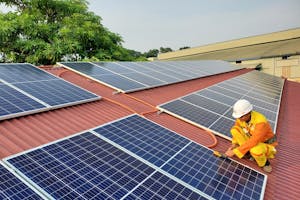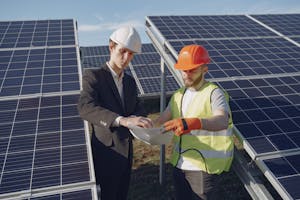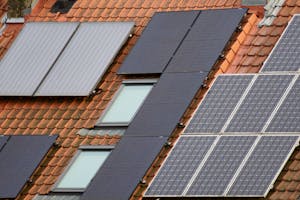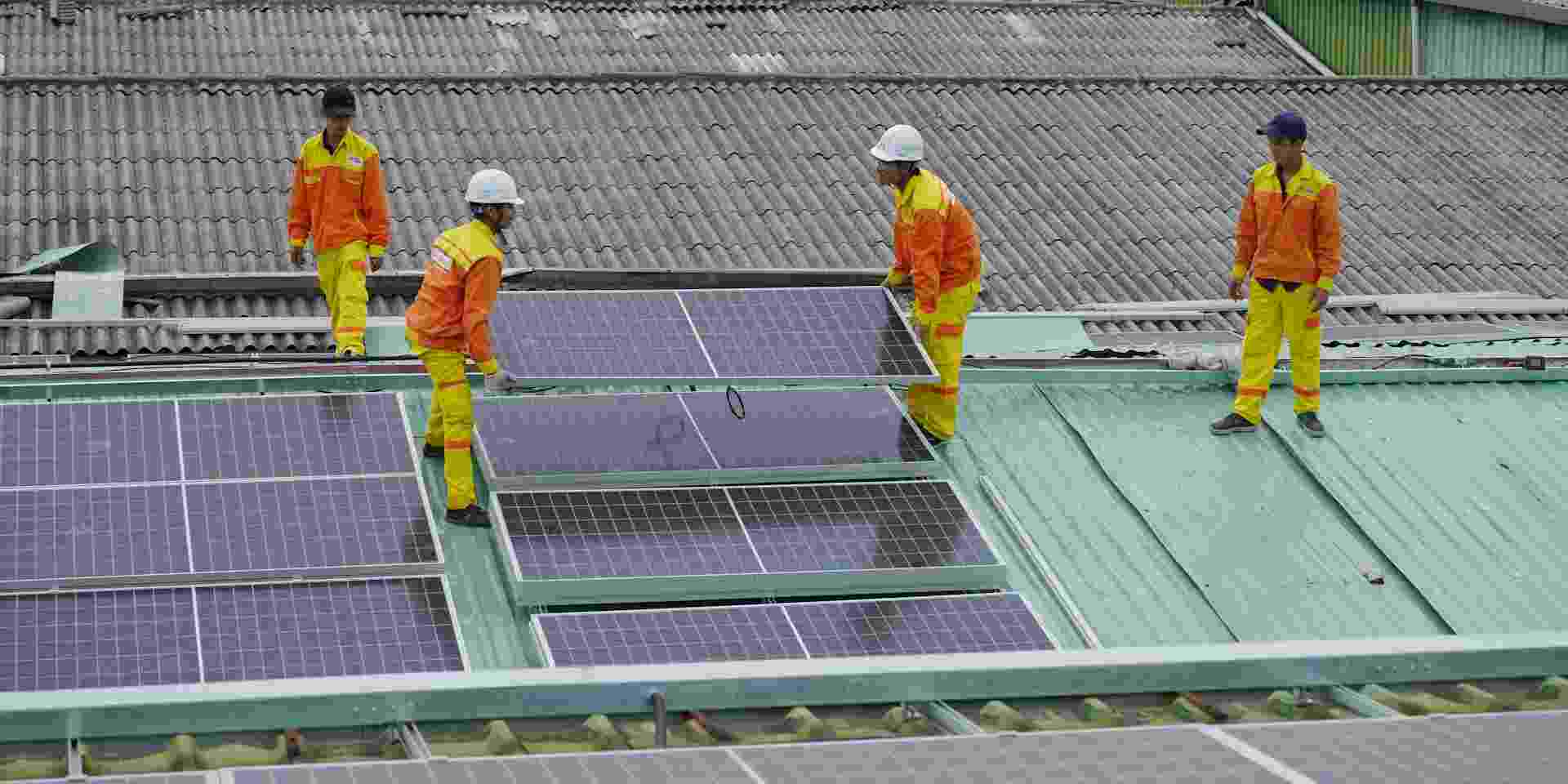
With energy rates increasing across Maryland, many homeowners wonder how to save money on new solar installations. Advertising campaigns promise “free” or “0-down” solar options to help reduce the upfront investment cost of new solar arrays. However, the reality of these offers and the payment plans provided by reputable local solar companies in maryland is more complex.
This article discusses the myth of “free solar power” and how 0-down solar installation agreements work in Maryland. Though installation costs are rising, the value of solar power investments has never been higher.
What is a No Money Down Solar Installation?
Many solar installation chains advertise “free solar installations.” Homeowners should know that there is no such thing as a free solar array. What these organizations promote is the concept of 0-down solar equipment, which means they will install an array, typically through a solar lease or other financing option, without upfront installation or equipment costs.
While installing a solar array with no money down is possible in Maryland, many homeowners wonder whether it will actually save them money. To figure this out, consider the three most common types of loans that installers will leverage to waive upfront installation costs: solar leases, power purchase agreements, and solar loans.
- Solar Lease: A solar lease is an agreement between a property owner and the solar installer that permits the owner to use the system to generate power in exchange for a fixed monthly premium. Though the installation is on the property owner’s roof, the installer still owns and maintains the system and panels.
- Power Purchase Agreement (PPA): A power purchase agreement (PPA) is similar to a lease in some ways, such as the fact that the installer owns the array. However, instead of a monthly premium, the property owner pays for the electricity the system generates at a discounted rate compared to on-grid utility prices.
- Solar Loans: A solar loan, similar to a car or mortgage loan, involves borrowing money from a financial institution to pay for the installation. In this financing method, the property owner owns the system and can use certain Maryland-sponsored programs, such as the Clean Energy Advantage (CEA) Loan Pilot Program and Solar Renewable Energy Certificates (SRECs), to help pay for their array.
These financing options can help homeowners obtain a 0-down solar installation in Maryland.
Pros and Cons of Solar Financing Methods
While solar leases, loans, and PPAs use similar terms to achieve a similar goal, they are not identical financing options. Each has advantages and disadvantages for homeowners hoping to obtain 0-down financing on their new solar installations.
Pros
Solar Leases
Solar leases provide a monthly fee-based payment system, often calculated based on the home’s estimated energy production. However, the amount is fixed for the length of the contract, which provides property owners with peace of mind that their energy bills will not increase over time. Additionally, the solar company usually pays for maintenance, performance monitoring, and system warranties since it still owns the system.
Power Purchase Agreements

PPAs charge property owners based on the power they generate rather than a monthly fee. If the array underperforms, the cost will decrease to reflect the reduced power generated. Similar to solar leases, PPA providers also pay for hardware repairs and maintenance.
Solar Loans
Solar loans are less similar to leases and PPAs since the homeowner pays for the array with help from a financial institution. The advantages of each loan depend on its specific terms. Additionally, by owning the array, property owners may be able to access tax advantages, rebates, and energy certificates to reduce costs.
Cons
Solar Leases
With solar leases, property owners should watch out for specific terms in their agreements, such as “escalator clauses,” which may stipulate a yearly rate increase of 1-3% to offset inflation. Leases also prevent property owners from using their solar array for other benefits, such as tax credits or rebates. Instead, the provider reaps those incentives.
Power Purchase Agreements
Similar to leases, PPAs are not owned outright, passing the financial advantages of solar installation ownership to the installer. However, since the cost is variable, months of lower power generation, such as an overcast winter, can raise power costs as homeowners rely more on their utility providers to heat the home. As with leases, escalator clauses are also common.
Solar Loans

While solar loans provide ownership, the property owner is responsible for maintenance costs, repairs, insurance, and performance drops. This can make loans a more complex financing option, but the long-term benefits can scale beyond leases, provided the owner works with an experienced local solar provider.
Work with One of the Top Solar Companies in Maryland
At Energy Select, our goal is to help home and business owners finance their solar arrays and begin saving on their monthly utility bills. While it’s possible to go solar with no money down in Maryland, this depends on the situation. A 0-down financing option may not be feasible or advantageous for many homeowners, who may prefer to own their systems outright, even if doing so requires a loan.
Contact us today for personalized financing options and state-of-the-art solar installations in Maryland.


